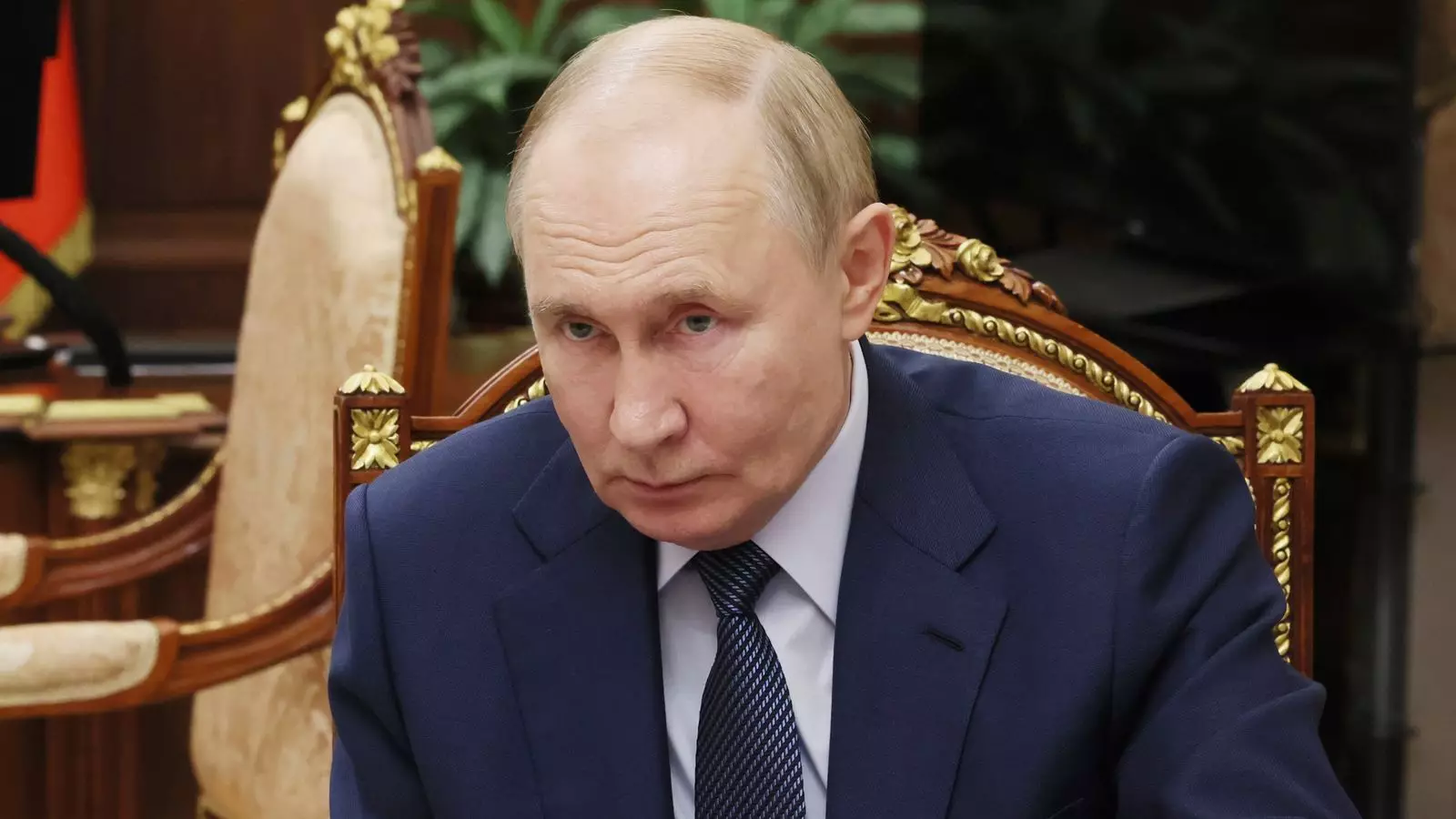The recent decision by the UK government to implement new sanctions against Russian oligarchs represents a significant policy move as the nation commemorates the three-year anniversary of Vladimir Putin’s invasion of Ukraine. This initiative, aimed at barring individuals associated with the Kremlin from entering the UK, underscores London’s commitment to combat threats posed by elite figures who have benefited from their connections to the Russian state.
The Home Office’s announcement details a broadened scope for identifying individuals who can be prohibited from entering the country. Key targets include those who provide “substantial support” to the Kremlin, as well as individuals whose wealth and status are implicitly tied to their allegiance to the Russian regime. By tightening entry restrictions on such individuals, the UK intends to signal its stance against the Kremlin while simultaneously safeguarding its national interests.
This strategic move comes at a critical time, coinciding not only with the anniversary of the war but also as international discourse surrounding Russia’s geopolitical maneuvers intensifies. Security Minister Dan Jarvis emphasized the premise that “border security is national security,” reflecting a growing recognition of the need for proactive measures against potential threats to British sovereignty.
Oligarchs as Instruments of Aggression
The UK government has characterized Kremlin-linked elites as “tools” that facilitate Putin’s aggressive foreign policy, including the ongoing conflict in Ukraine. The assertion suggests that these individuals do not simply enjoy a privileged position within Russian society; rather, they actively endorse and enable the state’s militant agenda. Such a narrative fosters a perception that these oligarchs are complicit in actions that undermine international stability and peace.
The government argues that public denunciations of British values by these elites run counter to the privileges they enjoy within the UK. The double standard posited by such behavior has galvanized officials to take a firm stand through concrete legislative measures. This harsh reality calls into question the morality of benefiting from a system while simultaneously undermining the values that allow such opportunities to exist.
The groundwork for these sanctions is not new; it builds upon earlier actions initiated shortly after the war in Ukraine began in February 2022. The UK’s commitment to financial sanctions has enabled it to close loopholes that allowed oligarchs to launder illicit funds, effectively severing the financial pipelines that sustain Kremlin activities beyond Russian borders.
Operation Destabilise marked a notable success in this regard, with the National Crime Agency (NCA) arresting key figures involved in expansive money laundering networks. This operation highlights the collaborative efforts between UK and international agencies to dismantle financial infrastructures that support anti-democratic activities.
The geopolitical situation remains fluid, with ongoing discussions spearheaded by US officials regarding the future of Ukraine. However, Ukrainian leaders, including President Volodymyr Zelenskyy, remain wary of any negotiations devoid of their involvement. Through this lens, it appears that national sovereignty and self-determination are paramount, with the UK asserting its support for Ukraine’s position amid complex diplomatic discussions.
As these issues unfold, public attention is likely to focus on the UK Prime Minister’s diplomatic engagements, particularly his impending meeting with former President Donald Trump. The dynamics at play will invariably influence perceptions of the UK’s role on the global stage, particularly concerning its stance on Russian aggression and its advocacy for Ukrainian autonomy.
The UK government’s latest sanctions against Kremlin-linked oligarchs underscore a steadfast commitment to national security and upholding democratic values in the face of external threats. By severing ties with individuals who tacitly support the Russian regime, the UK not only protects its own interests but also sends a powerful message to the international community about the consequences of complicity in aggression. As the situation in Ukraine continues to evolve, so too will the UK’s strategies in navigating this complex landscape, firmly anchored in principles of justice and sovereignty.

Leave a Reply